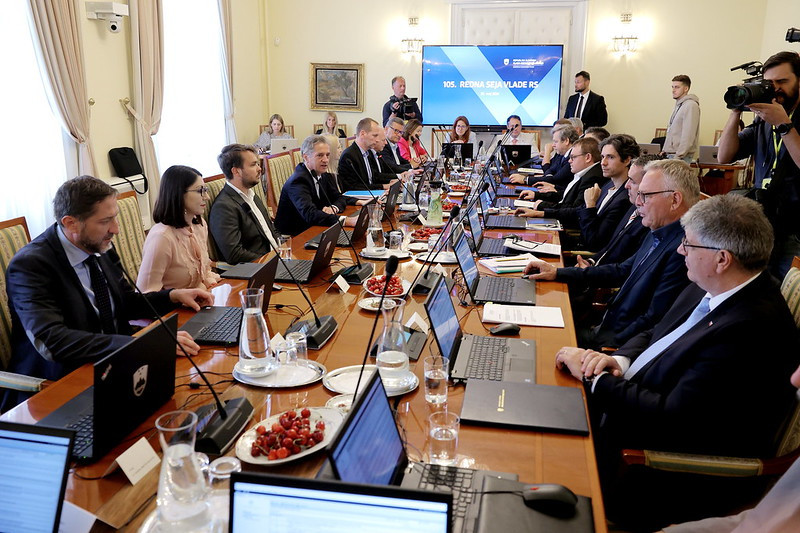117th regular session of the Government of the Republic of Slovenia
The Government discussed today the first package of tax amendment proposals and will give its final approval at a correspondence meeting in the coming days. The proposed measures aim to support a stimulating environment for development personnel and further strengthen the economy and value added. Among other things, we will introduce more favourable tax treatment for key development personnel from abroad and address the challenges of innovative start-ups and remunerating personnel with shares. The package also brings a number of other solutions, including in the areas of value added tax, the use of the green and digital transition allowance, farming in areas less favourable for agriculture, the taxation of soft drinks, and the tax system for persons entitled to a flat rate deduction, and we will also introduce a system for reporting data on the sale of goods and services via vending machines.
The Government also adopted the Baselines for drafting amendments to the Radiotelevizija Slovenija Act (ZRTVS-1) and issued an Ordinance amending the amount of the radio and television licence fee for the provision of radio and television activities by Radiotelevizija Slovenija. RTV Slovenija is the largest media and cultural institution and at the same time a public institution of special cultural and national importance. In addition to its news programme, its task is also to entertain and educate the Slovenian public with high-quality content on culture, sports, science, international politics, entrepreneurship, volunteering and other areas, and, as part of its public service, it manages archival materials and produces music and films. The Ministry of Culture has therefore prepared the baselines for legislative solutions to ensure even greater transparency of the management and supervision and financial independence, and to strengthen how effectively RTV Slovenija’s bodies and editorial structures already operate as independent entities. These focus on improving governance through a clearer division of responsibilities between the management board and the finance committee, and on the introduction of mandatory internal and external audits. In addition, the scope of the public service will be extended to include music production. Different funding models will also be explored to ensure long-term financial stability. All the proposed changes will be submitted by the Ministry of Culture to the Government by the end of 2024.
Today, the Government, in accordance with the law, adopted an ordinance on the increase of the RTV Slovenija licence fee, raising it from EUR 12.75 to EUR 14.02. Inflation and higher operating costs make it necessary to increase the RTV Slovenija licence fee, which has remained unchanged since 2012. No government has so far been willing to take up this issue. We believe that an excellent and independent public service is essential for exercising the right to information and is a prerequisite for a democratic society. Accordingly, both last year and this year the Government has provided additional funding to RTV Slovenija through the Office for National Minorities (last year: EUR 5 million, this year: EUR 10 million). The amount of funds currently collected through the licence fee can no longer guarantee the normal operation of RTV Slovenija. It should be recalled that in addition to all the different content it covers, RTV Slovenija also manages an extensive archive, as well film and music production. It has two national television programmes, three national radio programmes, and radio and television programmes produced by regional centres in Koper and Maribor. RTV Slovenija produces one radio and television programme for each of the autochthonous Italian and Hungarian ethnic communities, and radio and television programmes for the Roma ethnic community, as well as radio and television programmes for Slovenian national minorities in neighbouring countries and for Slovenian emigrants and expatriates, and also radio and television programmes for foreign audiences,teletext, internet and mobile portals. The ordinance will enter into force on 1 January 2025, and amendments to the existing act will have been prepared by that date.
The Government has set out the text of the proposed amendments to the Act on the Promotion of the Use of Renewable Energy Sources. The proposed act amends the conditions for joining the net metering self-supply system due to an increase in the number of requests for connecting appliances that the operator will not be able to carry out in time. The new regulation extends the deadline so that final customers have until 31 December 2024 to install such appliances and submit the connection application, but not to register the self-supply. This prevents investors from missing the deadline to join the system due to operational constraints. It also requires the addition of a photograph of the installation and a declaration under criminal responsibility to prevent abuse.


